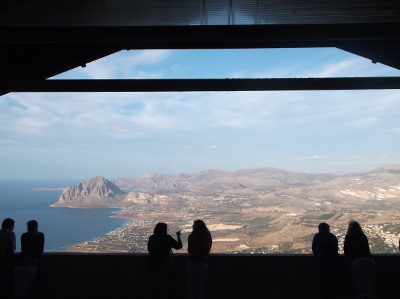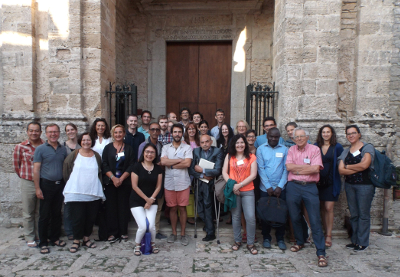


In 2015, the nations of the world came together in Paris, France, and agreed measures to tackle climate change and to limit global warming to a maximum of 2 degrees C above pre-industrial levels.
Among the 29 articles of the Paris Agreement, article 12 states that: “Parties shall cooperate in taking measures, as appropriate, to enhance climate change education, training, public awareness, public participation and public access to information, recognizing the importance of these steps with respect to enhancing actions under this Agreement.”
However, the article stops short of stating how such climate change education could be achieved.
To address this gap, La Main à la Pâte – a French foundation committed to promoting inquiry-based science education – convened a workshop in Erice, Sicily, Italy, on 1-7 September 2017.
The meeting was attended by some 35 experts in climate change science, education and related areas from some 15 countries. Among the participants was IAP Coordinator, Peter McGrath, and member of the IAP Science Education Programme’s Global Council, Carol O’Donnell of the Smithsonian Science Education Center in the USA.
.jpg) During the workshop, which was supported financially by the Erice-based Ettore Majorana Foundation and Centre for Scientific Culture, participants brainstormed on how available teaching materials might be crafted into curriculum frameworks, and how such curricula could be translated and adapted for use in different countries.
During the workshop, which was supported financially by the Erice-based Ettore Majorana Foundation and Centre for Scientific Culture, participants brainstormed on how available teaching materials might be crafted into curriculum frameworks, and how such curricula could be translated and adapted for use in different countries.
In particular, the dynamics of a proposed ‘international centre for climate change education’ were also sketched out. Such a centre would coordinate the production and/or approval of teaching materials (in line with the scientific conclusions of IPCC reports), and also undertake ‘train-the-trainer’ courses so as to inject climate change education into many countries.
As McGrath explained in his presentation, this is where IAP member academies can play a role – by connecting with their ministries of education and science, as well as reaching out to teachers in their countries. Academies also possess the necessary expertise to be able to adapt educational modules to local situations.
The meeting concluded with the release of a ‘Concluding Statement: Climate Change: A Challenge for Science Education’ that confirms the commitment of those attending the workshop to develop further the proposal for a global centre and to remain engaged in the process of establishing the centre and participating in its subsequent activities.
